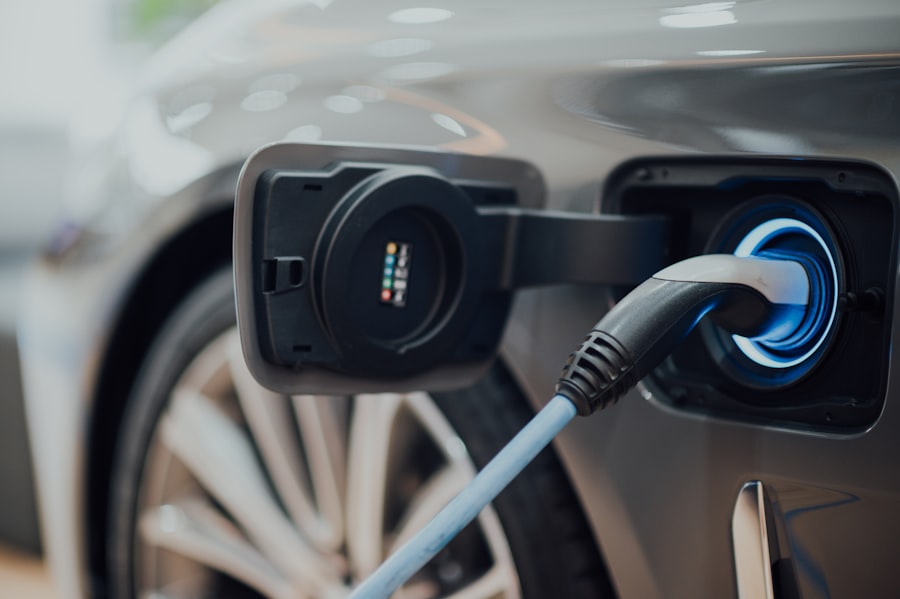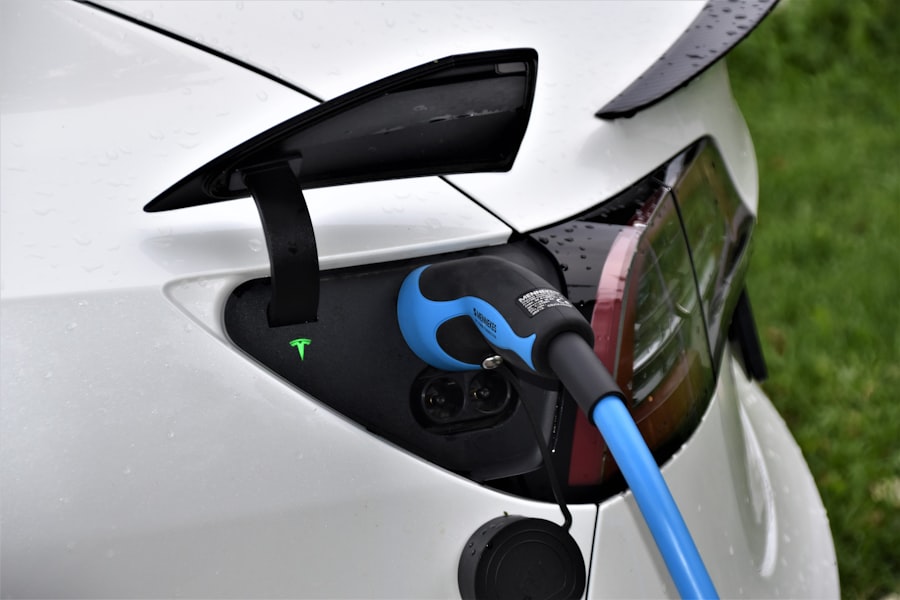As you navigate the streets today, you may notice an increasing number of electric vehicles (EVs) gliding silently past you. This surge in popularity is not merely a trend; it represents a significant shift in the automotive industry. The rise of electric vehicles can be attributed to a combination of technological advancements, environmental concerns, and changing consumer preferences.
With manufacturers investing heavily in research and development, the performance and affordability of EVs have improved dramatically, making them more accessible to the average consumer. You might find yourself drawn to the sleek designs and innovative features that these vehicles offer, as they become more than just a mode of transportation—they are now symbols of modernity and sustainability. Moreover, the growing awareness of climate change and the urgent need to reduce carbon emissions have propelled electric vehicles into the spotlight.
As you consider your own carbon footprint, the appeal of driving an EV becomes even more pronounced. Many people are now prioritizing eco-friendly options, and electric vehicles provide a viable solution to reduce reliance on fossil fuels. The transition to electric mobility is not just about personal choice; it reflects a collective movement towards a more sustainable future.
As you witness this transformation, you may feel inspired to join the ranks of those who are embracing this new era of transportation.
Key Takeaways
- Electric vehicles are becoming increasingly popular due to their environmental benefits and technological advancements.
- Efficient charging infrastructure is crucial for the widespread adoption of electric vehicles.
- Challenges such as limited charging stations and long charging times need to be addressed for electric vehicle charging to become more convenient.
- Electric vehicles have a positive impact on the environment by reducing greenhouse gas emissions and air pollution.
- Government support and incentives play a key role in promoting the adoption of electric vehicles.
The Need for Efficient Charging Infrastructure
As electric vehicles gain traction, the necessity for a robust and efficient charging infrastructure becomes increasingly apparent. You may have experienced the frustration of searching for a charging station, only to find that they are few and far between. For EVs to become a mainstream choice, a comprehensive network of charging stations is essential.
This infrastructure must be strategically located in urban areas, along highways, and in rural communities to ensure that all drivers have access to charging facilities. The convenience of charging your vehicle should be as seamless as refueling a traditional gas-powered car, allowing you to travel without anxiety about running out of power. In addition to accessibility, the speed of charging is another critical factor that influences your decision to adopt an electric vehicle.
Fast-charging stations can significantly reduce the time it takes to recharge your vehicle, making long-distance travel more feasible.
The development of ultra-fast chargers and wireless charging solutions promises to enhance the overall experience of owning an electric vehicle, making it a more attractive option for consumers like you.
The Challenges of Electric Vehicle Charging

Despite the promising advancements in electric vehicle technology and infrastructure, several challenges remain that could impact your experience as an EV owner. One significant hurdle is the variability in charging station availability and compatibility. You may encounter different types of connectors and charging standards, which can complicate your ability to charge your vehicle on the go.
This inconsistency can lead to frustration and uncertainty, particularly if you are traveling in unfamiliar areas where charging options may be limited. Another challenge is the perception of range anxiety—the fear that your electric vehicle will run out of battery power before you reach your destination or a charging station. While advancements in battery technology have extended the range of many EVs, this concern still lingers for potential buyers like you.
Overcoming this anxiety requires not only improved battery performance but also a widespread network of reliable charging stations. As you weigh the pros and cons of electric vehicle ownership, addressing these challenges will be crucial in ensuring a smooth transition to electric mobility.
The Impact of Electric Vehicles on the Environment
| Metrics | Data |
|---|---|
| Reduction in CO2 emissions | Electric vehicles produce zero tailpipe emissions, reducing CO2 emissions compared to traditional vehicles. |
| Energy efficiency | Electric vehicles are more energy efficient than internal combustion engine vehicles, leading to lower energy consumption. |
| Impact on air quality | Electric vehicles contribute to improved air quality by reducing pollutants such as nitrogen oxides and particulate matter. |
| Resource depletion | Electric vehicles reduce the demand for fossil fuels, helping to conserve natural resources. |
| Noise pollution | Electric vehicles produce less noise pollution compared to traditional vehicles, contributing to quieter urban environments. |
The environmental benefits of electric vehicles are one of the primary reasons many individuals, including yourself, are considering making the switch from traditional gasoline-powered cars. By driving an EV, you contribute to reducing greenhouse gas emissions and improving air quality in your community. Unlike their internal combustion engine counterparts, electric vehicles produce zero tailpipe emissions, which means they do not release harmful pollutants into the atmosphere.
This shift towards cleaner transportation can have a profound impact on public health and the environment. Furthermore, as renewable energy sources become more prevalent in electricity generation, the environmental advantages of electric vehicles will only increase. If you charge your EV using solar or wind energy, for instance, you can significantly reduce your carbon footprint even further.
This synergy between renewable energy and electric mobility creates a powerful opportunity for individuals like you to make a positive impact on the planet. As awareness grows about the environmental implications of our transportation choices, more people are likely to embrace electric vehicles as a sustainable alternative.
The Role of Government in Promoting Electric Vehicle Adoption
Government policies play a pivotal role in shaping the landscape for electric vehicle adoption. As you consider purchasing an EV, you may find that various incentives and subsidies can make this transition more financially viable. Many governments offer tax credits, rebates, or grants for EV buyers, which can significantly reduce the overall cost of ownership.
Additionally, some regions have implemented policies that promote the development of charging infrastructure, ensuring that you have access to convenient charging options. Beyond financial incentives, government initiatives can also foster public awareness and education about electric vehicles. By investing in campaigns that highlight the benefits of EVs and addressing common misconceptions, governments can encourage more individuals like yourself to consider making the switch.
As you explore your options for sustainable transportation, understanding how government support can facilitate this transition will empower you to make informed decisions.
The Future of Electric Vehicle Charging Technology

The future of electric vehicle charging technology holds exciting possibilities that could enhance your experience as an EV owner. Innovations such as ultra-fast charging stations promise to reduce charging times significantly, allowing you to recharge your vehicle in mere minutes rather than hours. Imagine being able to stop at a charging station during a road trip and quickly get back on the road without lengthy delays—this is becoming increasingly feasible with advancements in technology.
Moreover, wireless charging solutions are on the horizon, which could revolutionize how you think about recharging your vehicle. With this technology, you could simply park over a charging pad and allow your car to charge without needing to plug it in manually. This convenience could eliminate many of the barriers associated with traditional charging methods and make owning an electric vehicle even more appealing for individuals like yourself.
The Economics of Electric Vehicle Charging
When considering an electric vehicle, understanding the economics of charging is essential for making an informed decision. You may be curious about how much it costs to charge an EV compared to fueling a gasoline-powered car. Generally speaking, electricity is often cheaper than gasoline on a per-mile basis, which can lead to significant savings over time.
As you calculate your potential expenses, it’s important to factor in not only the cost of electricity but also any applicable incentives or rebates that could further reduce your overall costs. Additionally, as more consumers adopt electric vehicles, economies of scale will likely drive down charging costs even further. Increased competition among charging providers could lead to lower prices and improved services for users like yourself.
Understanding these economic factors will help you appreciate the long-term benefits of investing in an electric vehicle while also considering how charging costs fit into your overall budget.
The Role of Public and Private Sectors in Building Charging Infrastructure
The development of a comprehensive charging infrastructure requires collaboration between public and private sectors. As you observe this landscape evolve, you’ll notice that both entities play crucial roles in expanding access to charging stations. Governments often provide funding and regulatory support for infrastructure projects while private companies invest in building and operating charging networks.
This partnership is essential for creating a seamless experience for EV owners like yourself. Public-private partnerships can lead to innovative solutions that address gaps in charging availability and accessibility. For instance, local governments may work with private companies to install charging stations in public spaces such as parks or shopping centers, ensuring that you have convenient access while running errands or enjoying leisure activities.
By fostering collaboration between these sectors, communities can create a robust network that supports electric vehicle adoption and enhances your overall experience as an EV driver.
The Importance of Education and Awareness about Electric Vehicle Charging
As electric vehicles become more mainstream, education and awareness about charging options are vital for potential buyers like yourself. Many individuals may still harbor misconceptions about EVs and their charging capabilities, which can deter them from making the switch.
Workshops, informational campaigns, and community events can serve as valuable resources for educating the public about electric vehicles and their associated charging infrastructure. As you engage with these initiatives, you’ll gain insights into how to maximize your EV ownership experience while also dispelling any myths that may exist around electric mobility. Increased awareness will not only benefit individual consumers but also contribute to a broader cultural shift towards embracing sustainable transportation solutions.
The Global Movement towards Electric Vehicle Adoption
The movement towards electric vehicle adoption is not confined to any single region; it is a global phenomenon that transcends borders. As you look around the world, you’ll see countries implementing ambitious plans to transition their transportation systems towards electrification. From Europe’s stringent emissions regulations to China’s aggressive investment in EV technology, nations are recognizing the importance of reducing reliance on fossil fuels and promoting cleaner alternatives.
This global shift presents an opportunity for individuals like yourself to participate in a larger movement towards sustainability. By choosing an electric vehicle, you’re not just making a personal choice; you’re contributing to a worldwide effort aimed at combating climate change and fostering cleaner air for future generations. As more countries commit to electrifying their transportation systems, you’ll find yourself part of an inspiring collective journey towards a greener future.
The Power of Innovation in Electric Vehicle Charging Solutions
Innovation is at the heart of transforming how we think about electric vehicle charging solutions. As technology continues to evolve rapidly, new ideas are emerging that promise to enhance convenience and efficiency for users like yourself. From smart charging systems that optimize energy use based on grid demand to mobile apps that help locate nearby charging stations in real-time, these innovations are designed with your needs in mind.
Furthermore, advancements in battery technology are paving the way for longer-lasting batteries with faster charging capabilities—making it easier than ever for you to integrate an electric vehicle into your daily life seamlessly. As these innovations unfold before our eyes, they hold great potential not only for improving individual experiences but also for shaping the future landscape of transportation as we know it today. In conclusion, as you reflect on the rise of electric vehicles and their implications for society at large, it’s clear that this movement is multifaceted—encompassing environmental benefits, economic considerations, technological advancements, and collaborative efforts between various sectors.
Your role as an informed consumer will be crucial in driving this change forward while embracing sustainable practices that benefit both yourself and future generations.
In exploring the future of electric vehicle charging, the documentary highlights the challenges and innovations in the industry. For a deeper understanding of the economic implications of electric vehicles, you can read a related article that discusses how wealth is being transformed by this shift in transportation. Check it out here: Economic Impacts of Electric Vehicles.
WATCH THIS! The $7.5 BILLION Lie: Why EV Chargers Are Always Broken
FAQs
What is an electric vehicle charging documentary?
An electric vehicle charging documentary is a film or video that explores the various aspects of electric vehicle charging, including the technology, infrastructure, environmental impact, and user experiences.
What topics are typically covered in an electric vehicle charging documentary?
An electric vehicle charging documentary may cover topics such as the history and development of electric vehicle charging technology, the different types of charging stations, the challenges and opportunities of building a charging infrastructure, the environmental benefits of electric vehicles, and the experiences of electric vehicle owners and users.
Why are electric vehicle charging documentaries important?
Electric vehicle charging documentaries are important because they help to educate and inform the public about the growing importance of electric vehicles and the infrastructure needed to support them. They also raise awareness about the environmental benefits of electric vehicles and the challenges and opportunities associated with transitioning to electric transportation.
Where can I watch an electric vehicle charging documentary?
Electric vehicle charging documentaries may be available for streaming on platforms such as Netflix, Amazon Prime, or YouTube. They may also be available for purchase or rental through online video stores or through the websites of the filmmakers or production companies.
